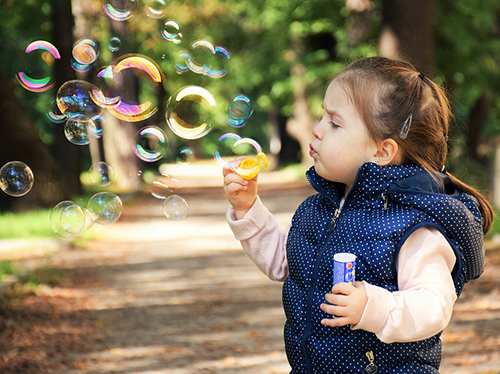In today’s fast-paced world, children face a multitude of challenges that can impact their emotional well-being. From academic pressures to social dynamics, it’s no wonder that many children experience emotional difficulties. Engaging with a child psychologist can be a pivotal step in addressing these issues. This article explores how therapy can significantly boost emotional development in children.
Understanding Emotional Development
Emotional development in children involves the process by which they learn to understand, express, and manage their emotions. This development is crucial as it influences their overall mental health and ability to form healthy relationships. When children effectively manage their emotions, they are better equipped to handle stress and adversity, contributing to a more resilient personality.
Key Stages of Emotional Development
Children go through various stages of emotional development. Each stage plays a critical role in shaping their ability to handle emotions and interact with others. Here are some key stages:
- Infancy (0-2 years): Babies start to express basic emotions like joy, anger, and fear. During this period, the bond with caregivers is essential as it lays the groundwork for emotional security and trust.
- Early Childhood (3-7 years): Children begin to develop more complex emotions and learn to empathize with others. They start to understand the concept of sharing, taking turns, and recognizing the feelings of others.
- Middle Childhood (8-12 years): Emotional regulation improves, and children become better at understanding their own and others’ emotions. This stage also sees the development of self-concept and the ability to form more complex social relationships.
- Adolescence (13-18 years): Teenagers experience heightened emotions and start to form their emotional identity. Peer influence becomes significant, and they begin to explore their own values and beliefs.
The Role of Child Psychologists
Child psychologists are trained to understand the intricacies of children’s emotional and psychological development. They employ various therapeutic techniques to help children navigate their emotional landscapes. These professionals can offer an unbiased perspective and are skilled at creating a safe and supportive environment for children to express their feelings.
Techniques Used by Child Psychologists
Child psychologists utilize a range of methods to support emotional development, including:
- Play Therapy: Using play to help children express their feelings and resolve psychological issues. Play therapy can be particularly effective for younger children who may not have the verbal skills to articulate their emotions.
- Cognitive-Behavioral Therapy (CBT): Teaching children to recognize and change negative thought patterns. CBT helps children develop healthier ways of thinking and reacting to situations, which can reduce symptoms of anxiety and depression.
- Family Therapy: Involving family members to address issues that affect the child’s emotional well-being. This approach can improve family dynamics and communication, providing a more supportive home environment for the child.
Benefits of Child Therapy
Therapy offers numerous benefits for children, helping them to develop emotionally and mentally. Here are some of the key advantages:
Improved Emotional Regulation
One of the primary benefits of child therapy is improved emotional regulation. Children learn to understand their emotions better and develop strategies to manage them effectively. This skill is crucial for reducing the risk of emotional outbursts and improving overall mental health.
Enhanced Social Skills
Therapy can also enhance a child’s social skills. By understanding their own emotions, children become more empathetic and better at forming relationships with peers. Improved social skills can lead to better interactions in school and other social settings, fostering a sense of belonging and community.
Boosted Self-Esteem
A significant aspect of emotional development is building self-esteem. Therapy helps children to recognize their strengths and build a positive self-image, which is crucial for their overall well-being. High self-esteem can empower children to take on new challenges and develop a more optimistic outlook on life.
Addressing Specific Emotional Issues
Children may face various specific emotional issues, such as anxiety, depression, or behavioral problems. Child counseling can address these issues effectively, providing tailored strategies to meet each child’s unique needs.
Anxiety and Stress
Children, like adults, can experience anxiety and stress. Therapy provides them with tools to manage these feelings, reducing their impact on daily life. Techniques such as relaxation exercises, mindfulness, and coping strategies can be taught to help children manage anxiety in various situations.
Depression
Childhood depression is a serious issue that can affect a child’s emotional development. Therapy offers a safe space for children to express their feelings and develop coping mechanisms. Early intervention can prevent the progression of depression and improve the child’s quality of life.
Behavioral Problems
Behavioral problems can stem from underlying emotional issues. Therapy helps to identify the root causes and provides strategies to address and manage these behaviors. Techniques such as behavior modification and positive reinforcement can be effective in reducing problematic behaviors and promoting positive actions.
How to Find the Right Therapist
Finding the right child therapist is crucial for the success of the therapy. Here are some tips to help you choose the right professional:
Qualifications and Experience
Ensure that the therapist is qualified and has experience in dealing with children. Look for credentials such as a degree in child psychology and relevant certifications. Experience with specific issues your child is facing can also be a significant factor in the effectiveness of the therapy.
Compatibility
The therapist should be someone your child feels comfortable with. A good rapport between the therapist and the child is essential for effective therapy. It may be helpful to have an initial meeting to see how the therapist interacts with your child and whether your child feels at ease.
Approach and Techniques
Different therapists use different approaches and techniques. Make sure that the therapist’s methods align with your child’s needs. Discuss the potential strategies they plan to use and consider whether these align with your child’s personality and issues.
Conclusion
Emotional development is a critical aspect of a child’s overall growth. Engaging with a child psychologist can provide the necessary support to navigate the complexities of their emotions. From improved emotional regulation and enhanced social skills to boosted self-esteem, the benefits of child therapy are manifold. By addressing specific emotional issues and finding the right therapist, you can help your child develop emotionally and lead a healthier, happier life.
Remember, the journey of emotional development is ongoing, and seeking professional help when needed is a step in the right direction. Investing in your child’s emotional health today can lay the foundation for a resilient and emotionally intelligent adult in the future.



